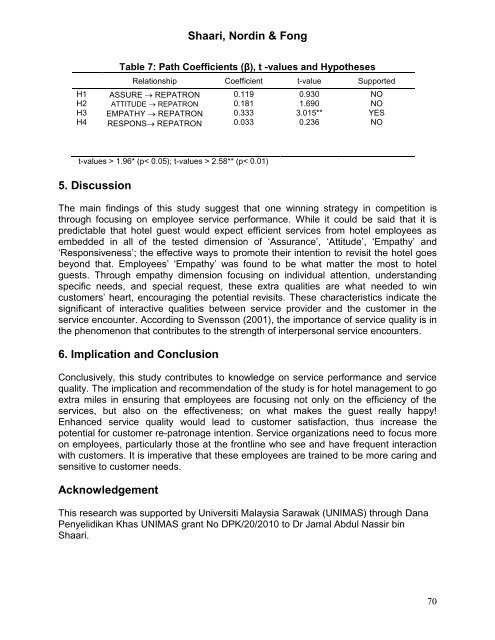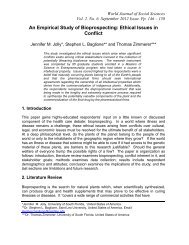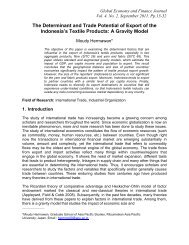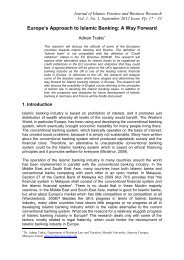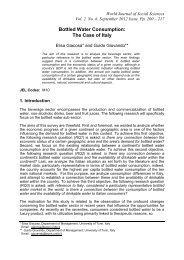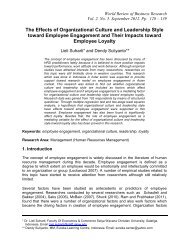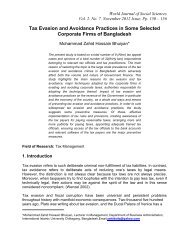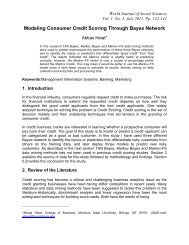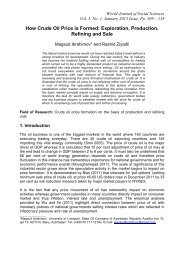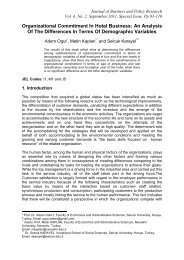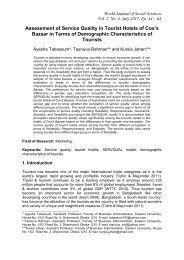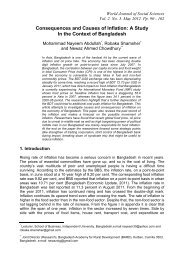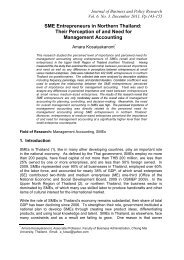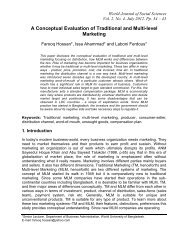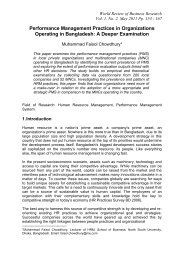Partial Least Square Model for Customer Re ... - Wbiaus.org
Partial Least Square Model for Customer Re ... - Wbiaus.org
Partial Least Square Model for Customer Re ... - Wbiaus.org
Create successful ePaper yourself
Turn your PDF publications into a flip-book with our unique Google optimized e-Paper software.
Shaari, Nordin & FongH1H2H3H4Table 7: Path Coefficients (β), t -values and Hypotheses<strong>Re</strong>lationship Coefficient t-value SupportedASSURE REPATRONATTITUDE REPATRONEMPATHY REPATRONRESPONS REPATRON0.1190.1810.3330.0330.9301.6903.015**0.236NONOYESNOt-values > 1.96* (p< 0.05); t-values > 2.58** (p< 0.01)5. DiscussionThe main findings of this study suggest that one winning strategy in competition isthrough focusing on employee service per<strong>for</strong>mance. While it could be said that it ispredictable that hotel guest would expect efficient services from hotel employees asembedded in all of the tested dimension of ‘Assurance’, ‘Attitude’, ‘Empathy’ and‘<strong>Re</strong>sponsiveness’; the effective ways to promote their intention to revisit the hotel goesbeyond that. Employees’ ‘Empathy’ was found to be what matter the most to hotelguests. Through empathy dimension focusing on individual attention, understandingspecific needs, and special request, these extra qualities are what needed to wincustomers’ heart, encouraging the potential revisits. These characteristics indicate thesignificant of interactive qualities between service provider and the customer in theservice encounter. According to Svensson (2001), the importance of service quality is inthe phenomenon that contributes to the strength of interpersonal service encounters.6. Implication and ConclusionConclusively, this study contributes to knowledge on service per<strong>for</strong>mance and servicequality. The implication and recommendation of the study is <strong>for</strong> hotel management to goextra miles in ensuring that employees are focusing not only on the efficiency of theservices, but also on the effectiveness; on what makes the guest really happy!Enhanced service quality would lead to customer satisfaction, thus increase thepotential <strong>for</strong> customer re-patronage intention. Service <strong>org</strong>anizations need to focus moreon employees, particularly those at the frontline who see and have frequent interactionwith customers. It is imperative that these employees are trained to be more caring andsensitive to customer needs.AcknowledgementThis research was supported by Universiti Malaysia Sarawak (UNIMAS) through DanaPenyelidikan Khas UNIMAS grant No DPK/20/2010 to Dr Jamal Abdul Nassir binShaari.70


